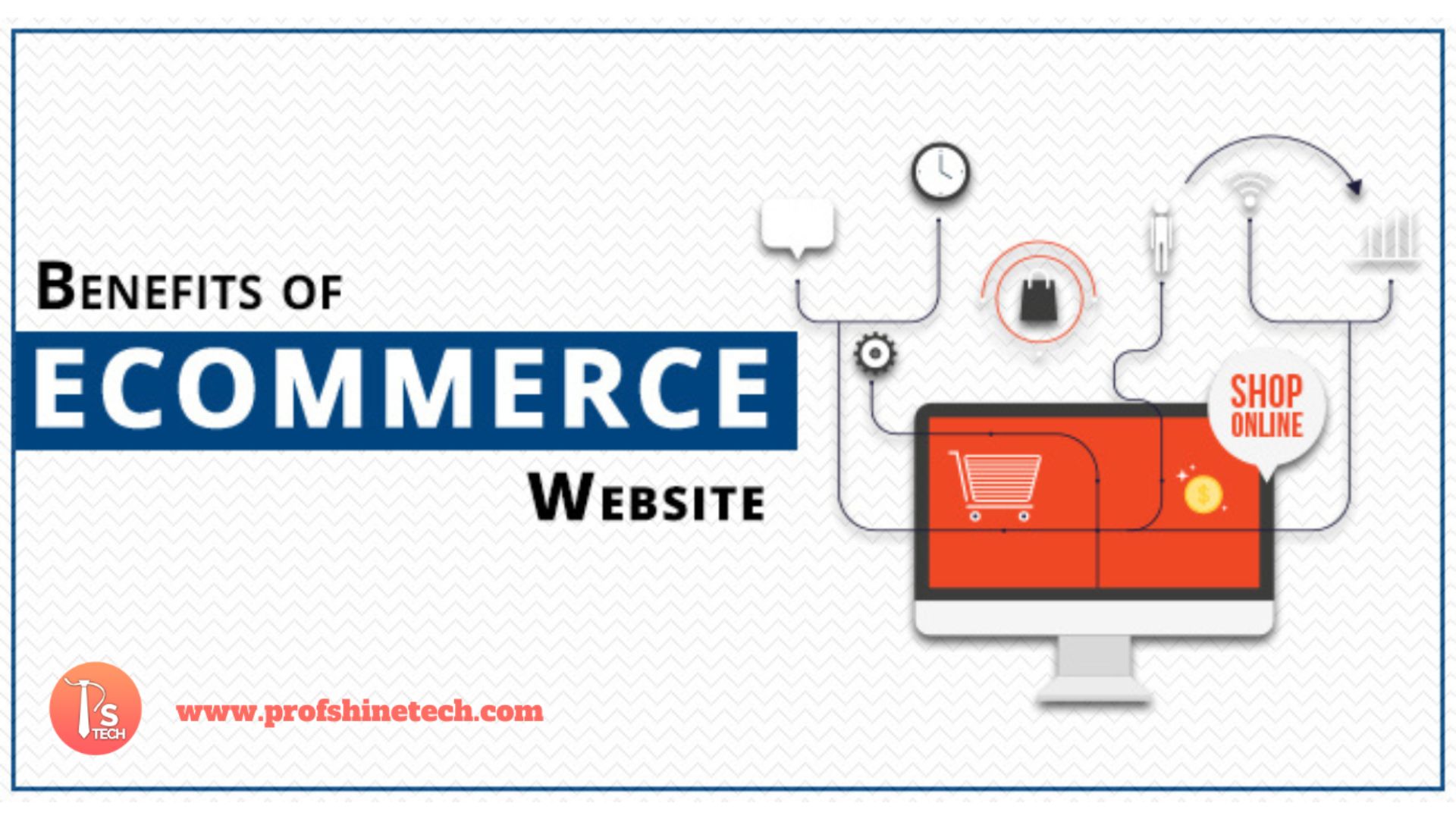In the past decade, e-commerce has taken the world by storm. With the rise of online shoppers, it’s no wonder that businesses are turning to the internet to sell their products. E-commerce websites have many benefits over brick-and-mortar stores. They are open 24/7, have lower overhead costs, and reach a larger audience. In this blog post, we will explore the top three benefits of having an e-commerce website.
An eCommerce website is a website that allows you to sell products or services online. It is a platform where you can display your products, take orders, and process payments. In other words, it is a digital storefront that allows you to reach a wider audience and boost your sales.
How E-Commerce Websites Will Benefit Your Business
The pandemic has forced businesses of all shapes and sizes to move online. 2021 is the year of eCommerce, with businesses investing in eCommerce website development to future-proof their operations.
An eCommerce website is a powerful tool that can help businesses reach a wider audience, improve customer service, and boost sales.
E-commerce websites typically contain a catalog of products, with detailed descriptions and images. Customers can add items to their virtual shopping basket, and then checkout and pay for their purchases using a credit or debit card. Once the transaction is complete, the goods are then shipped directly to the customer’s door.
There are many benefits of having an e-commerce website, including:
- Increased reach: An online store can be accessed by anyone with an internet connection, 24 hours a day, 365 days a year. This gives businesses a much wider reach than they would have if they were relying on brick-and-mortar stores alone.
- Lower overheads: There are no physical premises to maintain, so businesses can save on costs such as rent, utilities, and insurance.
- Greater flexibility: E-commerce websites can be easily updated and modified, without incurring any additional costs. This means that businesses can quickly adapt to changing customer needs and trends.
- Improved customer service: With an e-commerce website, customers can easily find what they are looking for and make purchases at their convenience. This leads to happier customers and improved customer retention rates.
- 24/7 availability: An eCommerce website is available to customers 24 hours a day, 7 days a week. This means that you can make sales around the clock.
- Increased sales: An eCommerce website can help you increase your sales by making it easy for customers to purchase your products or services.
How to Start Your Own Online Store
An e-commerce website allows you to reach a larger audience with your product or service. You can also operate your business 24/7, which is not possible with a brick-and-mortar store. In addition, an e-commerce website is less expensive to set up and maintain than a physical storefront.
If you're interested in starting your own online store, there are a few things you'll need to do:
1. Choose a niche or market for your store. This will help you focus your product selection and marketing efforts.
2. Find a web host and domain name for your store. You'll need somewhere to host your website and register a domain name (typically through a web hosting service).
3. Set up payment processing for your store. You'll need to be able to accept payments from customers if you want to sell products or services online. There are several options available, such as PayPal or credit card processors like Stripe.
4. Build your website using an eCommerce platform like Shopify, WooCommerce, or Magento. These platforms will provide you with the necessary tools and templates to create a professional-looking online store quickly and easily.
5. Stock your store with products or services that are in demand by your target market. Be sure to source high-quality items that will appeal to your buyers.
6. Promote your store through social media, search engine optimization (SEO), etc.
E-Commerce Website Tips for Successful Selling
If you're selling products or services online, there are certain website design and functionality elements that can help you be successful. Here are some tips to keep in mind for your e-commerce website:
- Make sure your website is secure and has an SSL certificate. This will ensure that customers' personal and financial information is safe when they make a purchase on your site.
- Use clear, concise copy to describe your products or services. Customers should be able to understand what you're offering without having to search for information.
- Use high-quality product photos and descriptions. Customers want to know exactly what they're buying, so don't skimp on the details.
- Offer multiple payment options. The more options you offer, the more likely you are to accommodate customers' preferences.
- Provide customer support Contact information that should be easy to find in case customers have questions or need assistance with their purchase.
E-Commerce Website Development Process
Are you looking to set up an eCommerce website? If so, you’re in the right place. This article will take you through the best practices for building an eCommerce website.
The process of building an eCommerce website can be divided into four distinct stages: 1) planning; 2) design and development; 3) testing and launch, and 4) post-launch. Each stage is important and should be given the attention it deserves.
If you’re looking to set up an eCommerce website, then read on to find out more about each stage in the process and what you need to do to ensure a successful launch.
What are the Best & Worst Practices for Building an E-Commerce Website?
When it comes to building an eCommerce website, there are a lot of things to consider. You need to think about your website's design, functionality, and most importantly, security. With so many different factors to consider, it can be hard to know where to start.
To help you out, we've put together a list of the best and worst practices for building an eCommerce website. By following these guidelines, you can be sure that your website will be secure and user-friendly.
Best Practices:
- Use a secure hosting service
- Use an SSL certificate
- Use a strong password
- Use Two-Factor Authentication
Worst Practices:
- Use a free hosting service
- Use a weak password
- Use a single authentication factor
- Use outdated security protocols
Conclusion: The Benefits of Having Your Own E-Commerce Website
E-commerce websites are becoming more and more popular every day. The benefit of having your own e-commerce website is that you have complete control over the design and content. This means that you can get the website to look exactly how you want it to, without having to worry about any restrictions.
Another benefit of having your own e-commerce website is that you can completely customize the shopping experience for your customers. You can add as many products as you want, change colors, and fonts, add or remove certain features - anything!
ProfshineTech has figured out the best possible solution for this problem and as a result, we came up with the idea of Store In Air. And after considering our client's feedback, we have developed a framework where you can start your online e-commerce journey without investing much time, energy, and of course your hard earned money and get your website live on your domain in just 24 hours and only at INR. 999/- only





























